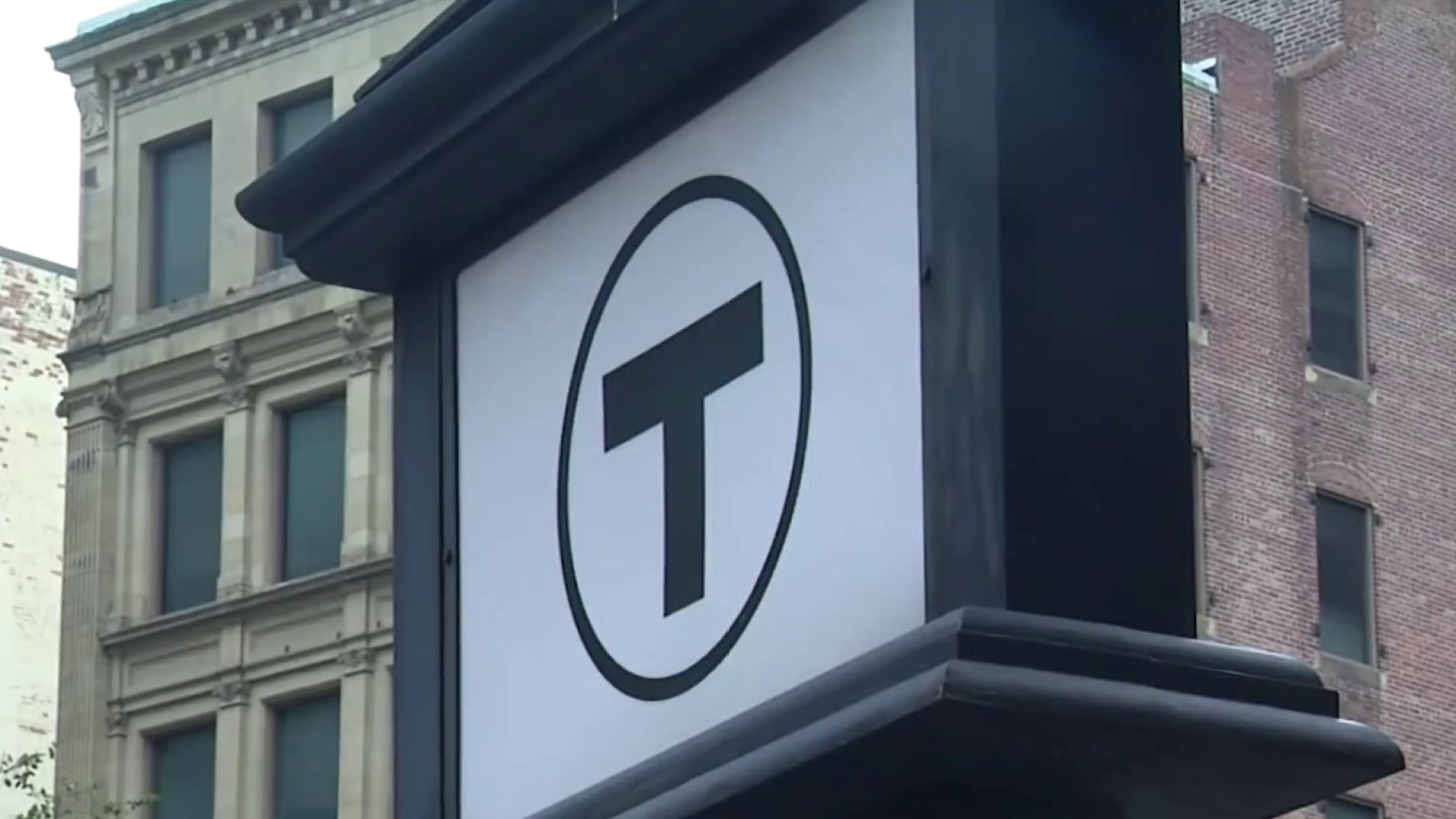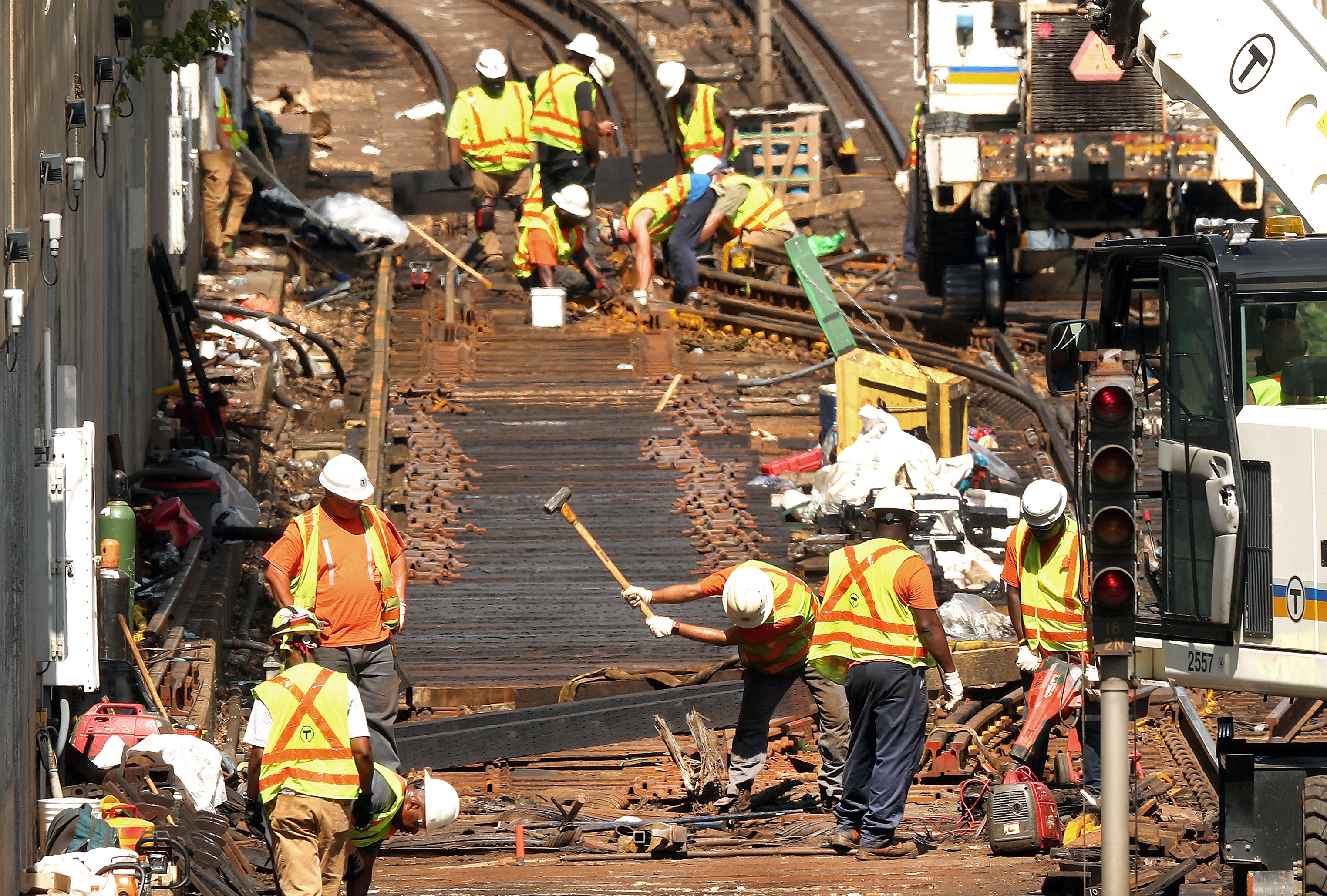The financial cliff looming in front of the MBTA turned out to be more of a financial hill last year, but that might be just a blip as the agency wrestles with the likelihood of adding more costs to an already-strained budget.
With fiscal year 2022 now in the rearview mirror, the MBTA's budget chief said Thursday that the beleaguered transit agency collected about $252.5 million more and spent $147 million less over the course of the year compared to the amounts projected in the annual budget board members approved in June 2021.
MBTA Chief Financial Officer Mary Ann O'Hara attributed the performance to several factors, including robust state sales tax collections that steered more money to the T and better-than-expected fare revenues, which still remain well below pre-pandemic levels.
Get Boston local news, weather forecasts, lifestyle and entertainment stories to your inbox. Sign up for NBC Boston’s newsletters.
Some of the boost has a downside, though: O'Hara said a major factor behind the below-budget spending was "lower wages and fringe benefits due to vacancies and slower hiring than anticipated" while the T grapples with staffing shortages that create service and safety headaches.
The T still relied on one-time federal funding to stave off a budget gap in FY22, dipping once again into a nearly depleted pot of $2 billion in pandemic relief. Even accounting for the increases in revenue and lower wage costs, the T would have ended the year $131.8 million in the red if it did not apply any of the federal aid, according to slides O'Hara presented to the MBTA board's audit and finance subcommittee.
Taken together, the T's financial results left about $500 million in one-time money on hand at the start of fiscal 2023 in July that the T will be able to deploy to close looming budget gaps, O'Hara's slides indicate.
Even if the performance in FY22 sands down some pessimism, the T's longer-term outlook is still strained. Officials in December projected the MBTA would face a shortfall of between $240 million and $421 million in FY24, depending on ridership trends, and worsening gaps in subsequent years.
O'Hara said Thursday her team will produce updated projections "shortly and we'll present them to you later in the fall," which will also include initial estimates about the costs of fulfilling safety directives the Federal Transit Administration issued Aug. 31 in a scathing report.
"The four (directives) that were issued on Aug. 31 have not yet been sized," O'Hara said. "We are working on that with the various teams, the operations teams and (new Chief of Quality, Compliance and Oversight) Katie Choe to come up with those numbers."
MBTA General Manager Steve Poftak previously projected the FTA's initial batch of findings published in June would require more than $300 million in spending, and O'Hara said officials are still trying to get a grasp on the financial implications of the final report.
"I think it's so important to separate out as much as you can what the impacts are due to the directives so that we can have a better case to make to go back to the Legislature and the governor and request more money," said MBTA board member Mary Beth Mello. "We all know it is going to take more money, and we can see that we have lots of other financial challenges."
The Legislature and Gov. Charlie Baker have already approved tranches of one-time funding totaling about $666 million to help the MBTA make fixes required by the FTA, and Baker called for another $200 million in a closeout budget.
It's already clear, though, that the T is headed for more than a one-time burst of spending.
In addition to the immediate fixes, the FTA warned that the MBTA may be 1,500 to 2,000 employees short of properly managing its current level of activity. Hiring that many people would represent expanding the T's workforce by roughly a third, a major expense.
"We need to understand what the recurring costs would be," MBTA Board of Directors Chair Betsy Taylor said at Thursday's committee meeting. "As I read the report, given the increased levels of staffing required in order to maintain the desired level of safety and in order to develop the kinds of communications systems within the organization that are rightly requested, it's got to cost more money, and that has absolutely nothing to do with the level of ridership. That's just the nature of what's being asked."
"We do believe (the costs) to be material, in simple terms," added MBTA Chief Administrative Officer David Panagore. He added that the five-year budget estimates set to be released this fall will likely change once the T wraps up a workforce assessment the FTA required.



